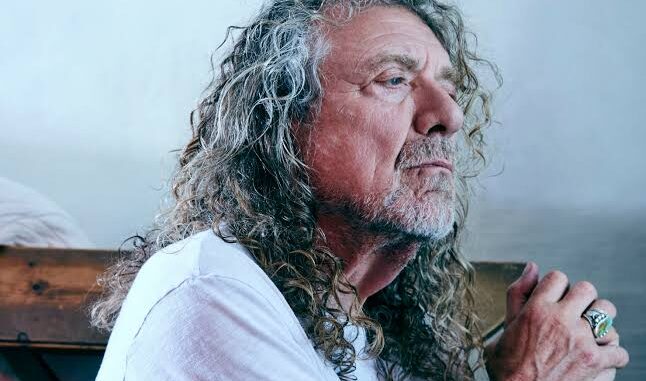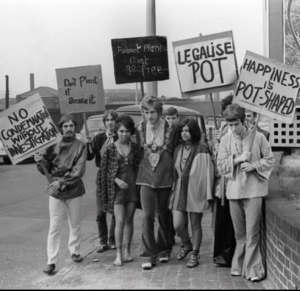
Looking Back: Robert Plant and the 1967 Birmingham Protest That Rocked a Generation
Before Led Zeppelin shook the world with thunderous riffs and mystical lyrics, a young Robert Plant was already finding his voice — not only as a musician, but as a restless spirit shaped by the times. One little-known chapter in his early life came in 1967, when he and a small group of friends took to the streets of Birmingham in a peaceful protest calling for the legalization of marijuana.

It was a time of upheaval, rebellion, and reevaluation. Across the UK and much of the Western world, youth were rejecting the rigid norms of the post-war era. Music, art, and protest were becoming intertwined, and for Plant, then just 19 years old, the two were inseparable.
A Protest Ahead of Its Time
The protest in Birmingham wasn’t massive — no police standoffs or televised confrontations — but it was brave. Britain in 1967 was still steeped in conservative drug policy. Marijuana was classified as a dangerous substance under the Dangerous Drugs Act, and possession could lead to prison time.
Still, that didn’t stop Plant and his circle of musician friends, poets, and free-thinkers from gathering in Victoria Square. Wearing paisley shirts and peace signs, with flowers in their hair and banners reading “Herb is Healing” and “End the Stigma,” they stood peacefully in solidarity with a growing international movement.
Those who were there recall the atmosphere being more like a folk festival than a riot. Plant, already known around the Midlands music scene for his powerful voice and charismatic presence, reportedly brought a guitar and sang alongside fellow blues enthusiasts. It wasn’t about making headlines. It was about making a statement.
“We Were Just Tired of the Fear”
In a later interview during the 1970s, when asked about his early activism, Plant recalled that day in Birmingham.
“We weren’t trying to change the world overnight,” he said. “We just believed people should have the freedom to choose. Cannabis wasn’t some menace — it was something ancient, something calming. And yet they treated it like dynamite. We were tired of the fear, tired of people being punished for peace.”
The protest, while modest in scale, reflected a broader cultural shift. Just months earlier, in July 1967, The Beatles had publicly backed a similar movement when they signed a letter to The Times calling for the decriminalization of cannabis. Public discourse was changing, but on the ground, young people like Plant were still risking reputations and legal trouble just for speaking out.
Before the Spotlight
At the time of the protest, Plant was still building his music career. He had played in several bands — Listen, Band of Joy, and Obs-Tweedle — and had already developed a reputation as a talented, deeply expressive performer. Jimmy Page had not yet come calling, and Led Zeppelin was still a year away from being formed.
Those who knew Plant in that era describe him as idealistic, well-read, and constantly searching — not just musically, but spiritually and politically. The protest wasn’t a one-off moment of rebellion, but part of a larger pattern of questioning authority, embracing natural living, and pushing back against the establishment.
A Legacy in the Shadows
The 1967 Birmingham protest has often been overlooked in Plant’s biography, overshadowed by the meteoric rise of Led Zeppelin just a few years later. But in recent years, fans and music historians have started to revisit it as a symbol of who Plant really was in his formative years — a young man attuned to the world, unafraid to speak his truth, even when it went against the grain.
Decades later, as global attitudes toward cannabis softened and many countries moved toward legalization or decriminalization, moments like that protest take on new meaning. They were early sparks in a fire that would take generations to catch.
Still Speaking Through Action
Though Plant never became a loud political figure, moments like that 1967 protest remind us that he always stood for more than just the music. His art, his actions, and his choices reflect a lifelong commitment to freedom — of thought, of sound, and of expression.
“I think we all just wanted to live a little lighter,” he once said when asked about the spirit of the 60s. “Music helped. So did nature. And sometimes, so did a bit of green.”
Today, that day in Birmingham lives on not through official records or massive headlines, but in the memories of those who saw a young Robert Plant doing something many weren’t willing to: stand still, raise a sign, and ask for a kinder way forward.